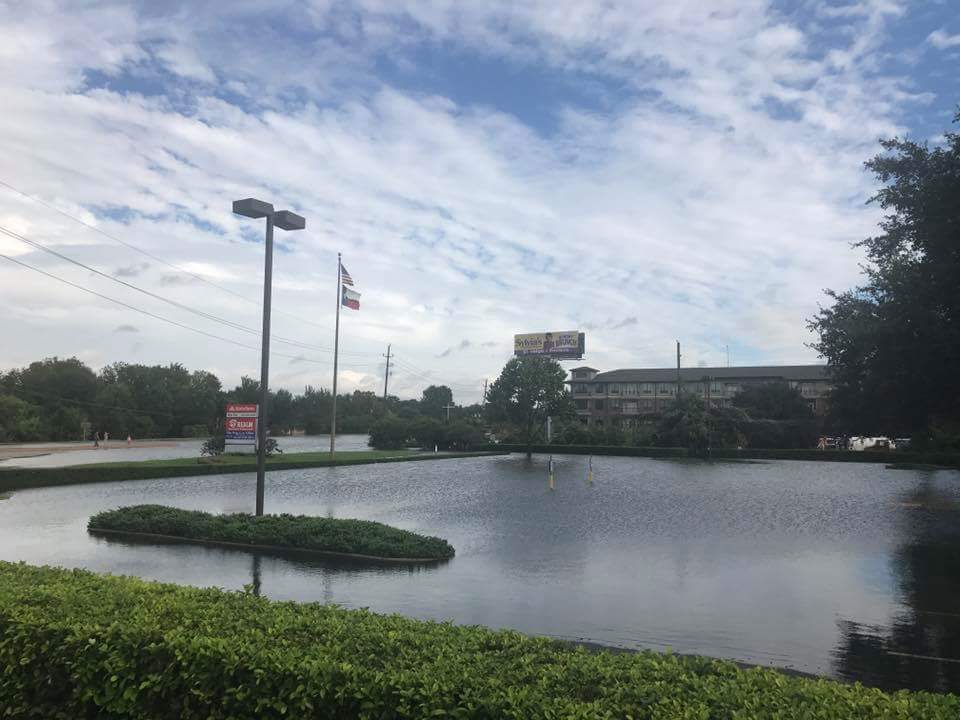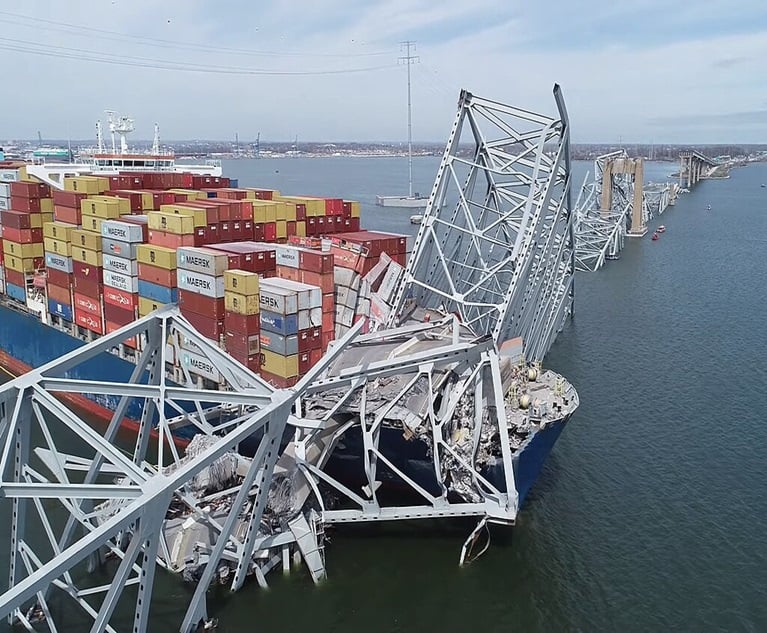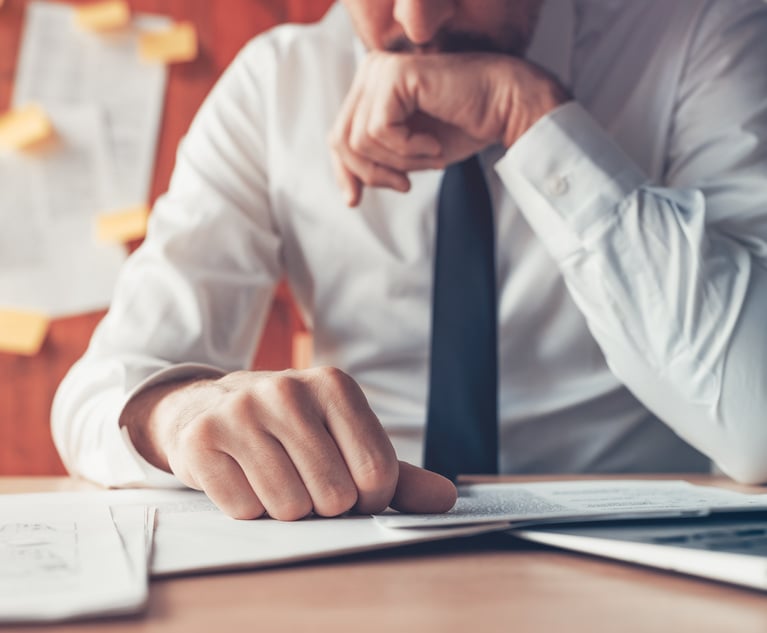Perhaps no legal cause of action is more frequently applied oruniversal than one sounding in negligence.
|We bring it when another driver damages our vehicles, when ourbuildings are damaged from faulty construction, and when a medicalprocedure leaves a patient worse off than before.
|While some negligence actions may be held to a heightenedstandard (i.e., professional malpractice, or may be codified torequire particular facts), negligence is largely evaluated underthe same four elements in any variation: Duty, breach, causationand damages.
|When a party is damaged, be it through personal injury, propertydamage or other harm, the party will look to recover his damagesfrom potential sources of the injury. Initially, the injured partymust evaluate whether he was owed a duty of care from some personor entity relating to the injury. But what about a party who isinjured in the course of a natural disaster, or in legal terminology, an“Act of God”?
|An “Act of God” has been defined in the context of a legalaction to mean any irresistible disaster, the result of naturalcauses, such as earthquakes, violent storms, lightning and unprecedented floods, which could not have beenreasonably anticipated, guarded against or resisted. [Piqua v.Morris (1918)] It is “[a] providential occurrence orextraordinary manifestation of the forces of nature which could nothave been foreseen and the effect thereof avoided by the exerciseof reasonable prudence, diligence and care or by the use of thosemeans which the situation renders reasonable to employ.” [SouthernAir Transport v. Gulf Airways]
|Who can recover?
Can a party who sustains personal injury, property damage or other harm during such anevent recover against another person or entity? It is widelyaccepted in U.S. and state courts that an “Act of God” may serve asan affirmative defense to a negligence action, where the injuryresults from an Act of God.
|While the Act of God defense is frequently raised as anaffirmative defense in negligence actions, there are circumstancesunder which another entity may be responsible for damages sustainedduring the course of a natural disaster or “Act of God.” If propercare and diligence on the part of a person or entity would haveavoided certain damage, then the injury is not excusable as an Actof God.
|Floodwaters from Hurricane Harvey damaged hundreds ofstructures in the Houston, Texas area. (Photo: AmericanTechnologies, Inc.)
|The Act of God defense and naturaldisasters
In order for the Act of God defense to bar a plaintiff'snegligence claim at the summary judgment stage, there must be noevidence in the record under which a reasonable mind could concludethat a defendant acted negligently concurrently with the Act ofGod, proximately causing the plaintiff's injury, or that thedefendant could have reasonably anticipated, guarded against andforeseen the Act of God causing the injury.
|In Lord & Taylor LLC v. Zim Integrated ShippingServs., Ltd., the Southern District of New York concluded thata shipping contractor was not responsible for merchandise damagedwhile in its custody during Hurricane Sandy. In this matter,plaintiff Lord and Taylor brought an action seeking to recover$206,972 in damages that it suffered when 211 cartons containingLord and Taylor women's sweaters and cardigans were ruined due toflooding at the New York Container Terminal.
|The Lord and Taylor Court evaluated whether the Act of God(i.e., the weather conditions resulting from Hurricane Sandy) wasunforeseeable at the given time and place such that Zim had noreasonable precautions available to prevent the damage at issue.Unique to this case were the facts that in its 50-year history, theNew York Container Terminal had never experienced flooding from astorm surge, Hurricane Sandy was unusually destructive, and therelevant forecasts predicting the level of destruction that Sandycaused did not arrive until later in the weekend, when nothing morecould have been done to prevent damage to the cartons at New YorkContainer Terminal.
|However, because this is a fact-intensive inquiry, differentconclusions will frequently be reached on whether the Act of Goddefense will serve to bar a plaintiff's claim for negligence.
|In Borries v. Grand Casino of Miss., Inc., the BorriesConstruction Company asserted claims of negligence and grossnegligence against the Grand Casino for property damage it sufferedwhen the Grand Casino's gambling barges broke loose from theirmoorings and collided with Schooner Pier and surrounding structuresduring Hurricane Katrina. While proclaiming the popular rule, thatthe Act of God defense will not bar recovery for an injury whichcould have been prevented through the use of ordinary care eventhough no one is liable for an injury proximately caused by an Actof God exclusively, the Borries Court held that Grand Casino couldnot rely on the affirmative defense to avoid liability for its ownconduct which may have failed to meet the applicable standard ofcare.
|Specifically, if Grand Casino failed to moor its barge towithstand foreseeable storm surges, like those which may occur in anatural disaster such as Hurricane Katrina, then Grand Casino maybe a concurrent cause of Borries' damages and liable fornegligence. Under this holding, it is apparent that the Act of Goddefense will not be dispositive when any facts are establishedunder which reasonable minds could conclude that a party failed tomeet its duty of care to the injured party.
|Related: Coverage disputes and 'arising out of'claims
|
There may be subrogation potential for damage from flooding,wind and other Acts of God. (Photo: American Technologies,Inc.)
|Is there subrogation potential?
When property damage or other injuries occur in the context ofan Act of God, an insurer should not conclude that subrogation isnot possible due to the Act of God defense. Although the Act of Godmay be a large contributing factor to a particular injury or damageclaim, there is potential for subrogation against a party whosehuman factor contributed to the damages sustained.
|In reality, subrogation in the context of an Act of God is notdifferent from subrogation in the context of any property damage orinjury claim. That is, because the insurer stands in the shoes ofits insured, if the insured could have a cause of action against aparty who failed to meet its duty of care in relation to the damagesustained, then it follows that the insurer, too, would have theability to pursue the same claim in a subrogation action fornegligence.
|In the Alabama Southern District Court, Skandia Insurance Co.brought an action sounding in negligence to recover damages tocargo of its insured that occurred in surge flooding associatedwith a hurricane. [Skandia Ins. Co. v. Star Shipping AS]
|Skandia alleged that its insured's cargo was damaged as a resultof the defendants' failure to move the cargo out of harm's way whenit had ample notice of the impending hurricane. In response toSkandia's claim, the defendants had the burden of establishing thatthe force of the storm was “truly irresistible and unforeseen andthat all precautions had been taken.”
|Once again, the court concluded that because of theunpredictable nature of Hurricane George and the inability ofweather forecasting to “tame” that inherent nature, coupled withthe fact that the defendants had no prior notice of any flooding inthe container yards in question or that the cargo would be in anydanger, defendants took all reasonable precautions, under thecircumstances, to care for the cargo and were free ofnegligence.
|In sum, when an Act of God occurs it is important to considerall potential sources of injury, including whether there is anyactor who had a duty to exercise reasonable care to avoid the harm,and if that actor met his duty. If there is an actor who failed tomeet his duty of taking reasonable measures and precautions againstthe injury, then both an injured party, and/or his subrogee couldmaintain a negligence action against that actor.
|Ariel M. Lipsky ([email protected]) is anattorney with Keis George LLP and concentrates in insurancesubrogation litigation, including but not limited to automobile,fire, construction defect and product liability.
Want to continue reading?
Become a Free PropertyCasualty360 Digital Reader
Your access to unlimited PropertyCasualty360 content isn’t changing.
Once you are an ALM digital member, you’ll receive:
- All PropertyCasualty360.com news coverage, best practices, and in-depth analysis.
- Educational webcasts, resources from industry leaders, and informative newsletters.
- Other award-winning websites including BenefitsPRO.com and ThinkAdvisor.com.
Already have an account? Sign In
© 2024 ALM Global, LLC, All Rights Reserved. Request academic re-use from www.copyright.com. All other uses, submit a request to [email protected]. For more information visit Asset & Logo Licensing.








